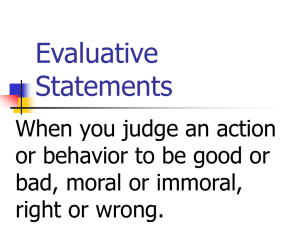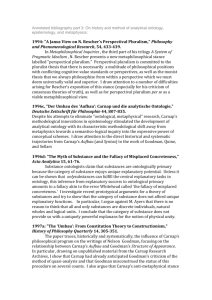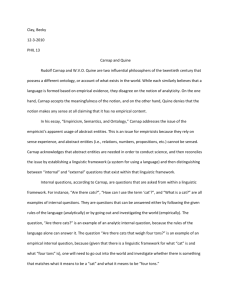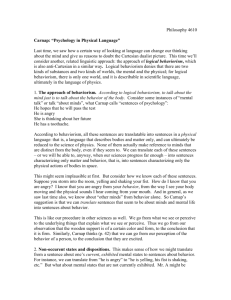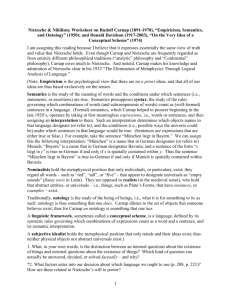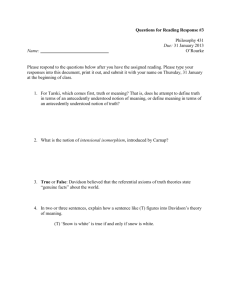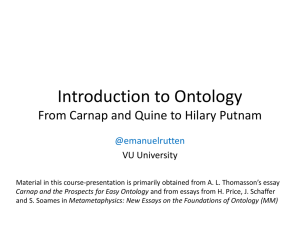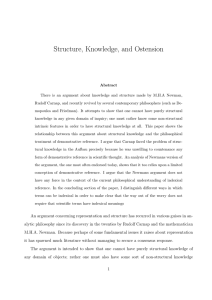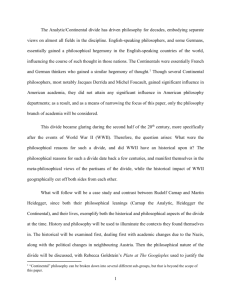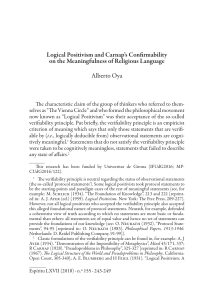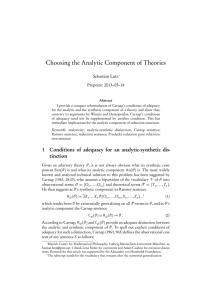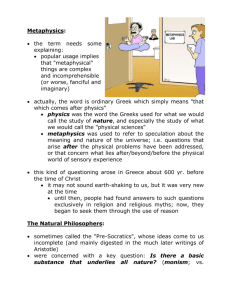Worksheet
advertisement
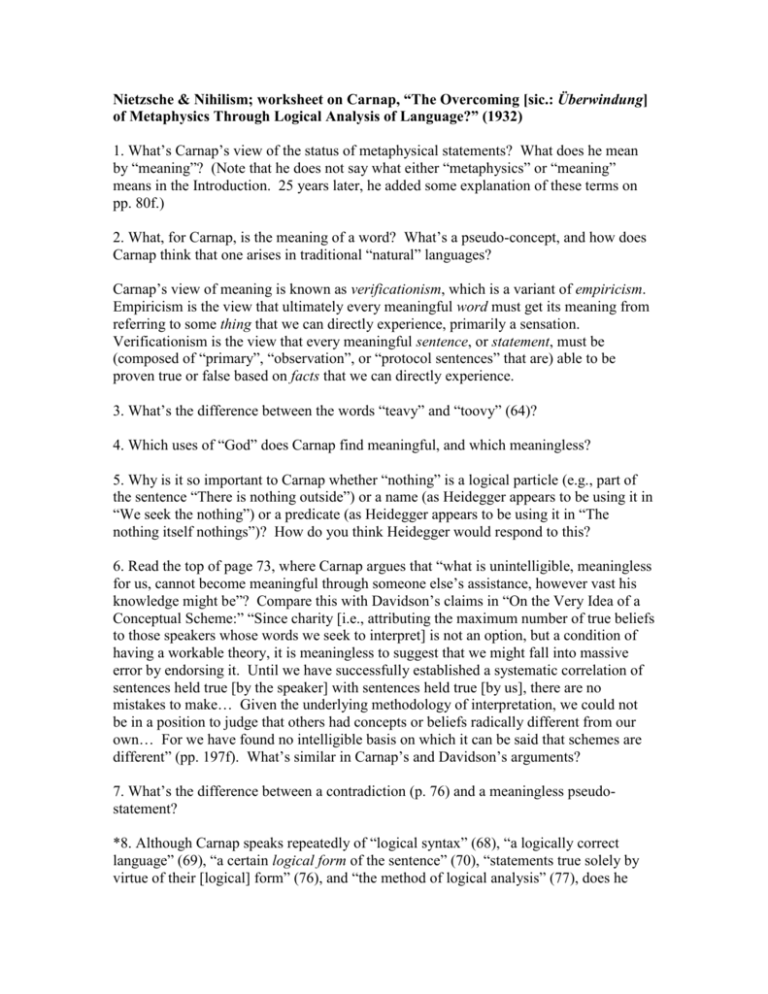
Nietzsche & Nihilism; worksheet on Carnap, “The Overcoming [sic.: Überwindung] of Metaphysics Through Logical Analysis of Language?” (1932) 1. What’s Carnap’s view of the status of metaphysical statements? What does he mean by “meaning”? (Note that he does not say what either “metaphysics” or “meaning” means in the Introduction. 25 years later, he added some explanation of these terms on pp. 80f.) 2. What, for Carnap, is the meaning of a word? What’s a pseudo-concept, and how does Carnap think that one arises in traditional “natural” languages? Carnap’s view of meaning is known as verificationism, which is a variant of empiricism. Empiricism is the view that ultimately every meaningful word must get its meaning from referring to some thing that we can directly experience, primarily a sensation. Verificationism is the view that every meaningful sentence, or statement, must be (composed of “primary”, “observation”, or “protocol sentences” that are) able to be proven true or false based on facts that we can directly experience. 3. What’s the difference between the words “teavy” and “toovy” (64)? 4. Which uses of “God” does Carnap find meaningful, and which meaningless? 5. Why is it so important to Carnap whether “nothing” is a logical particle (e.g., part of the sentence “There is nothing outside”) or a name (as Heidegger appears to be using it in “We seek the nothing”) or a predicate (as Heidegger appears to be using it in “The nothing itself nothings”)? How do you think Heidegger would respond to this? 6. Read the top of page 73, where Carnap argues that “what is unintelligible, meaningless for us, cannot become meaningful through someone else’s assistance, however vast his knowledge might be”? Compare this with Davidson’s claims in “On the Very Idea of a Conceptual Scheme:” “Since charity [i.e., attributing the maximum number of true beliefs to those speakers whose words we seek to interpret] is not an option, but a condition of having a workable theory, it is meaningless to suggest that we might fall into massive error by endorsing it. Until we have successfully established a systematic correlation of sentences held true [by the speaker] with sentences held true [by us], there are no mistakes to make… Given the underlying methodology of interpretation, we could not be in a position to judge that others had concepts or beliefs radically different from our own… For we have found no intelligible basis on which it can be said that schemes are different” (pp. 197f). What’s similar in Carnap’s and Davidson’s arguments? 7. What’s the difference between a contradiction (p. 76) and a meaningless pseudostatement? *8. Although Carnap speaks repeatedly of “logical syntax” (68), “a logically correct language” (69), “a certain logical form of the sentence” (70), “statements true solely by virtue of their [logical] form” (76), and “the method of logical analysis” (77), does he ever explain what “logic” means? This is especially important, since he uses logic to determine whether or not sentences are meaningful or not. 9. If the task of metaphysics, as Carnap defines it, is “to discover and formulate a kind of knowledge which is not accessible to empirical science” (76), then why aren’t logical truths (“tautologies”) and Carnap’s own statements in this essay metaphysical? 10. If metaphysical statements are for Carnap just nonsense, then why have so many smart people gotten so worked up on one side the other of metaphysical controversies (78)? *11. Carnap’s essay ends with the highest praise for Nietzsche, “almost entirely avoided the error of that confusion [between the medium of the theoretical and the need for expression in art].” On what does Carnap base this claim? What do you think Nietzsche would say of Carnap’s efforts?
